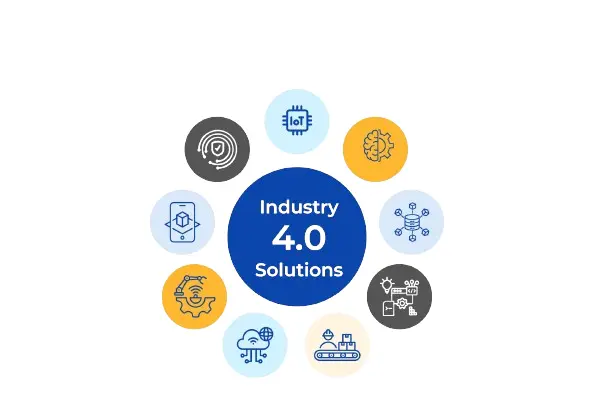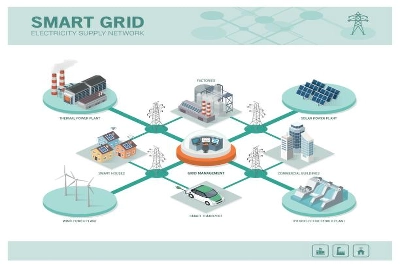Course Overview
This course provides a deep understanding of electric vehicle (EV) charging infrastructure and its integration with smart grids. It covers different charging technologies, infrastructure planning, grid connectivity, demand-side management, and vehicle-to-grid (V2G) solutions. Participants will gain insights into regulatory frameworks, grid resilience, energy storage solutions, and the role of renewables in EV charging. Through case studies, interactive discussions, and hands-on activities, attendees will develop the skills needed to design, implement, and optimize EV charging networks.
Duration:
5 Days
Target Audience:
- Energy and Utility Professionals
- EV Charging Infrastructure Developers
- Transportation and Fleet Managers
- Government and Regulatory Officials
- Engineers and Technicians in the Power Sector
- Business and Investment Professionals in E-Mobility
- Smart Grid and Renewable Energy Specialists
Personal Impact:
- Deepened understanding of EV charging technologies and infrastructure planning
- Strengthened ability to integrate smart grid solutions with EV charging
- Improved knowledge of demand response strategies and V2G applications
- Enhanced expertise in regulatory frameworks and policy compliance
- Increased confidence in designing and managing EV charging networks
Organizational Impact:
- Improved efficiency and sustainability in EV charging operations
- Strengthened compliance with industry standards and regulations
- Enhanced grid stability and resilience through smart energy management
- Increased adoption of renewable energy in EV charging networks
- Greater competitiveness and innovation in e-mobility solutions
Course Level:
Course Objectives:
- Understand different types of EV charging technologies and their applications
- Analyze charging infrastructure planning and deployment strategies
- Explore the role of smart grids and renewable integration in EV charging
- Examine demand-side management and vehicle-to-grid (V2G) solutions
- Assess regulatory policies and business models for charging networks
- Develop strategies for optimizing grid resilience and efficiency
Course Outline
Module 1: Fundamentals of EV Charging Infrastructure
- Overview of EV charging types: AC, DC fast charging, and wireless charging
- Charging station components and technical requirements
- Site selection and deployment considerations
- Economic and environmental benefits of charging infrastructure
- Case Study: Successful EV charging networks around the world
Module 2: Smart Grid Technologies for EV Charging
- Basics of smart grids and their role in energy transition
- Smart metering and real-time energy management
- Grid capacity planning for large-scale EV integration
- Challenges in grid stability and peak demand management
- Hands-on Activity: Simulating EV charging demand on the grid
Module 3: Vehicle-to-Grid (V2G) and Demand Response Strategies
- Understanding bidirectional charging and V2G technology
- Load balancing and demand-side management techniques
- Integration of energy storage solutions in charging networks
- Economic and technical challenges in V2G adoption
- Case Study: Real-world applications of V2G in smart cities
Module 4: Renewable Energy Integration and Sustainability
- Solar, wind, and hybrid energy solutions for EV charging
- Battery energy storage systems (BESS) for grid support
- Carbon footprint reduction through green charging initiatives
- Regulatory and financial incentives for renewable-powered charging stations
- Hands-on Activity: Designing a sustainable EV charging hub
Module 5: Policy, Regulation, and Future Trends
- Global and regional EV charging policies and incentives
- Business models for public and private charging networks
- Cybersecurity and data privacy concerns in smart charging
- Future trends: Ultra-fast charging, wireless charging, and AI-driven optimization
- Hands-on Activity: Developing a roadmap for EV charging infrastructure expansion
Related Courses
Course Administration Details:
METHODOLOGY
The instructor-led trainings are delivered using a blended learning approach and comprise presentations, guided sessions of practical exercise, web-based tutorials, and group work. Our facilitators are seasoned industry experts with years of experience, working as professionals and trainers in these fields. All facilitation and course materials will be offered in English. The participants should be reasonably proficient in English.
ACCREDITATION
Upon successful completion of this training, participants will be issued an Indepth Research Institute (IRES) certificate certified by the National Industrial Training Authority (NITA).
TRAINING VENUE
The training will be held at IRES Training Centre. The course fee covers the course tuition, training materials, two break refreshments, and lunch. All participants will additionally cater to their travel expenses, visa application, insurance, and other personal expenses.
ACCOMMODATION AND AIRPORT PICKUP
Accommodation and airport pickup are arranged upon request. For reservations contact the Training Officer.
- Email: [email protected]
- Phone: +254715 077 817
TAILOR-MADE
This training can also be customized to suit the needs of your institution upon request. You can have it delivered in our IRES Training Centre or at a convenient location. For further inquiries, please contact us on:
- Email: [email protected]
- Phone: +254715 077 817
PAYMENT
Payment should be transferred to the IRES account through a bank on or before the start of the course. Send proof of payment to [email protected]
Click here to register for this course.
Register NowCustomized Schedule is available for all courses irrespective of dates on the Calendar. Please get in touch with us for details.
Do you need more information on our courses? Talk to us.










